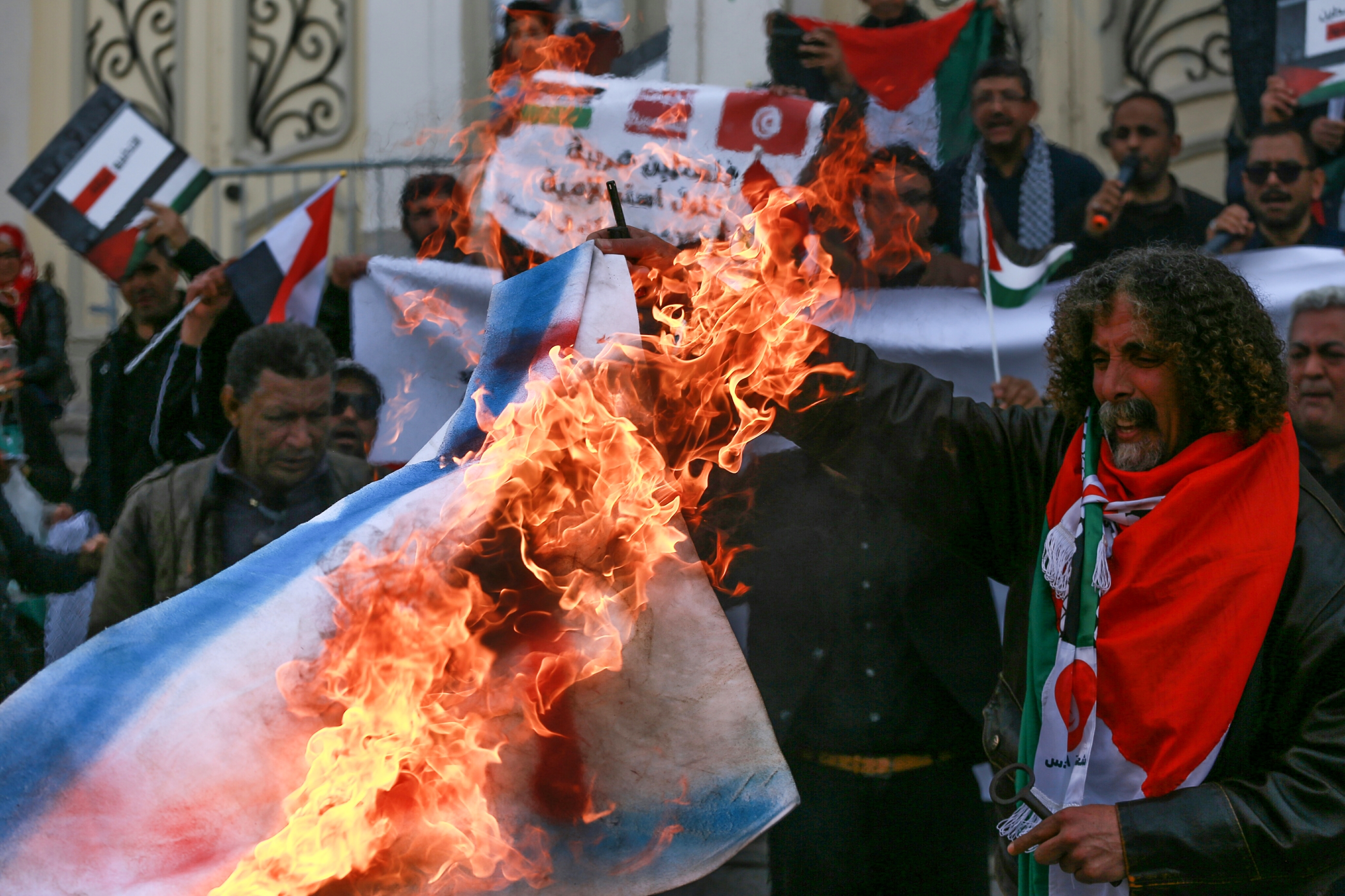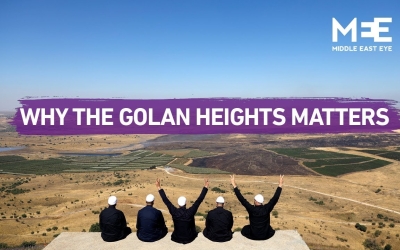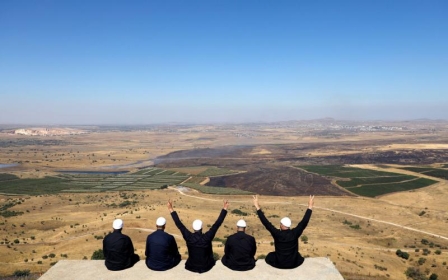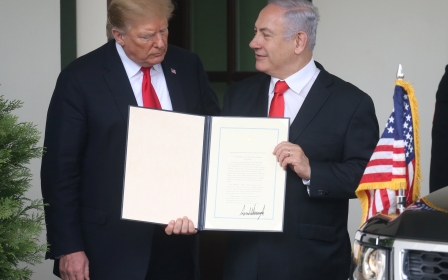Trump's Golan declaration unites Arab League in condemnation

Despite Israel's growing and increasingly public closeness to certain Arab governments, the Arab League unanimously rejected the US decision to recognise Israeli "sovereignty" over the occupied Golan Heights as it met for its summit in Tunis on Sunday.
Tensions remained over Iran's regional role and the Gulf Arab states' diplomatic split with Qatar, whose emir Sheikh Tamim bin Hamad Al Thani left early, as well as protests in Algeria and Sudan. However, the grouping was clear in its rejection of US President Donald Trump's move last week on the Golan.
Israel occupied the Golan Heights in the 1967 Middle East war, taking the strategic plateau from Syria, whose readmission to the Arab League has been discussed in recent months as members renew contacts with the country following President Bashar al-Assad's increasing control over opposition-held areas.
Saudi Arabia's King Salman told Arab monarchs, presidents and prime ministers at the meeting that his country "absolutely rejects" any measures affecting Syria's sovereignty over the Golan Heights.
Trump's Golan decision followed a US move to recognise Jerusalem as Israel's capital, a decision that also drew Arab condemnation. Palestinians want East Jerusalem as the capital of a future state.
Tunisian President Beji Caid Essebsi said Arab leaders also needed to ensure the international community understood the importance of the Palestinian cause to Arab countries.
UN Secretary-General Antonio Guterres, who addressed the meeting in Tunis, said any resolution to the Syrian conflict must guarantee the territorial integrity of Syria "including the occupied Golan Heights".
Syria was suspended by the Arab League in 2011 for its violent crackdown on protesters, but in recent months the relationship has been increasingly rehabilitated, with Syria attending regional meetings and receiving an official visit by Sudanese President Omar al-Bashir.
Its place at the congress in Tunis remained empty, and the Arab League said there is still no consensus on Syria's return.
Rifts remain
The Tunis summit brought together the rulers of Saudi Arabia and Qatar for the first time at the same gathering since 2017, when Riyadh and its allies the UAE, Bahrain and Egypt imposed a political and economic boycott on Doha.
However, Qatar's emir left the summit hall shortly after Arab League Secretary-General Ahmed Aboul Gheit praised the way Saudi Arabia handled the union's rotating presidency last year, live television footage showed.
Qatar's state news agency did not say why Tamim left, but Tunisia's state news agency TAP said the rest of Qatar's delegation stayed.
The blockading states accuse Qatar of seeking to undermine them and say it has been cosying up to Iran, charges Doha denies.
The row has defied mediation efforts by Kuwait and the United States, which has called on Gulf Arab states to unite in opposition to Iranian influence in the region.
King Salman, whose country has long vied with Iran for influence in the region, called for confronting what he called the "aggressive policies of the Iranian regime". He said Iran was interfering in Arab affairs, a charge Tehran dismisses.
Arab states remain divided over other issues, including how to deal with pro-democracy protests that have erupted in the region since 2011.
The leaders of Sudan and Algeria were not at Sunday's meeting as both nations have been roiled by anti-government protests.
Middle East Eye delivers independent and unrivalled coverage and analysis of the Middle East, North Africa and beyond. To learn more about republishing this content and the associated fees, please fill out this form. More about MEE can be found here.





